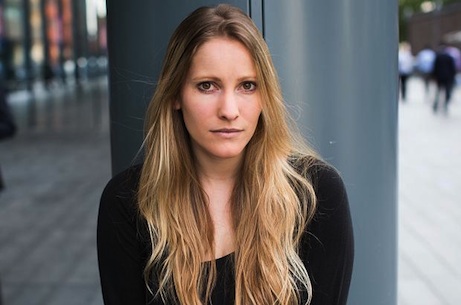
Laura Bates, author of 'Everyday Sexism', will speak today at the Global Scholars Symposium in Oxford.
Just days after the airing new BBC2 Television programme “Blurred Lines: the New Battle of the Sexes” and the launch of the international reproductive rights campaign “I decide”, the founder of the Everyday Sexism Project Laura Bates will discuss the impact of sexism in society with 150 of the world’s brightest students at the Global Scholars Symposium (GSS) in Oxford today.
The 2014 GSS, whose theme this year is “Dare to Differ”, brings together the world’s leading scholars studying on Rhodes, Marshall, Fulbright, Churchill, Chevening, Clarendon, Weidenfeld, Commonwealth and Gates Cambridge scholarships in the United Kingdom.
Executive Director of the GSS Katie Hammond [2011], a Commonwealth Scholar and Gates Cambridge Alumna, highlighted the importance of these future leaders recognising and addressing sexism in all aspects of life.
“Despite numerous interventions and programmes aimed at gender equality, the reality is that women in the UK still earn £5,000 a year less than men and only account for 24% of senior management roles and 22% of the House of Commons,” she said.
“As scholars and future leaders, we have a responsibility to work towards innovative solutions for complex global challenges. Speakers like Laura Bates who shine light on difficult and often hidden topics help GSS to foster an environment for students to think critically about society, their research and their future roles as leaders.”
The GSS will run until 18th May at Rhodes House, Oxford. During the symposium delegates will engage in interactive workshops and community sessions, discuss a range of pertinent societal issues, and hear from a variety of speakers including environmental activist David Suzuki; Tara Cullis, writer, president and co-founder of the David Suzuki Foundation; Erica Kochi, the co-director of UNICEF’s Innovation Unit; Professor Joel Bakan, author of The Corporation; and Jennifer Robinson, lawyer and advisor to Wikileaks.
The Everyday Sexism Project is a repository of women’s stories – “stories of sexism faced on a daily basis, by ordinary women, in ordinary places”. Women from around the globe submit descriptions of their everyday experiences of sexism, from the serious to the “so-used-to-it-you-almost-just-accept-it” sexism. The aim is to highlight sexism as a problem that still exists all over the world, one that needs to be addressed.
Further information about the symposium can be found here. Follow the GSS on Twitter: @GSSymposium, #DareToDiffer












